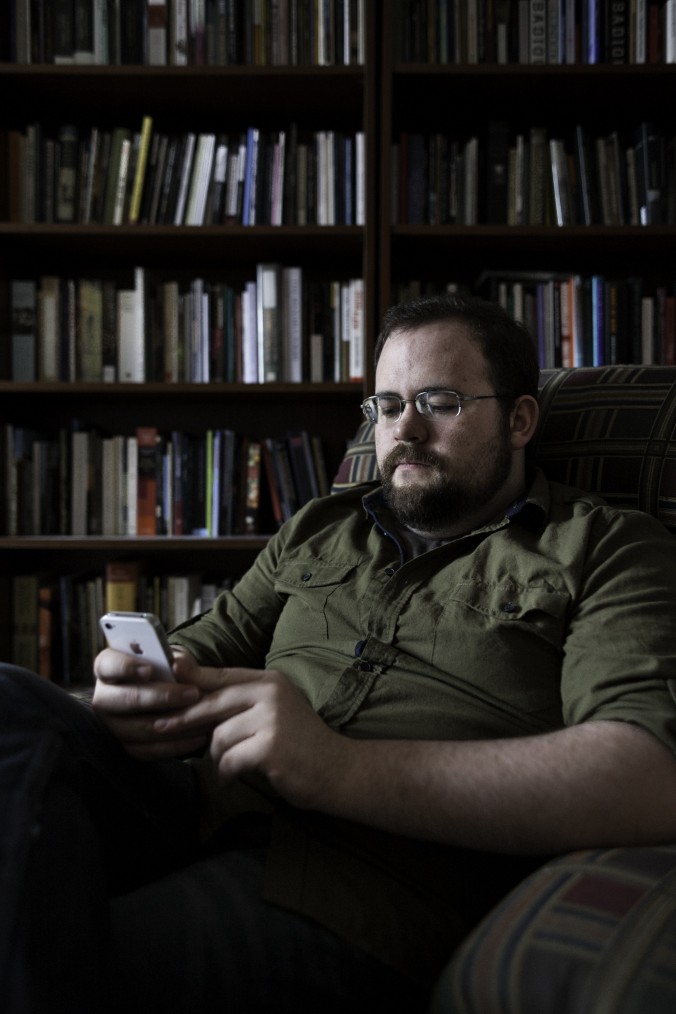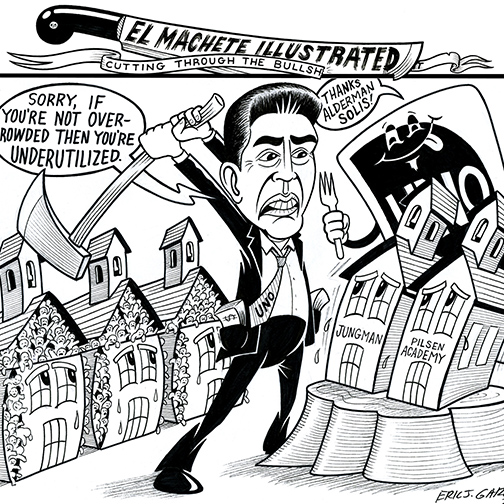
Bradshaw Stanley believes that movement should be a basic human right.
“It’s outrageous to me that we should even pay a bus fare,” he says via Skype as his motions blur across the screen. The flow of (body) language and the click of passing words stir a conversation about what he calls an “erotics” of writing.
By erotics, Stanley is referring to the poetic relationships between two things: two bodies, two words, bodies and words, a train and a body, a journey and a destination, movement and language, even medicine and writing, in both of which Stanley has been immersed as of late.
After earning a degree in mathematics and literature at the University of Houston, 23-year-old Stanley studied to become a physician at Baylor College of Medicine and the University of Chicago’s Pritzker School of Medicine. He began his residency at Rush University Medical Center, but soon after decided to attend SAIC, where he’s currently a second year MFA Writing candidate. What some people might see as polar opposite disciplines — medicine and art — have become affectionately intertwined in his work.
The city of Chicago has a lot to do with Stanley’s creative process, where his poetry and anatomical knowledge reticulate. He often gathers observations from, not always his destinations, but the moments encased in public transportation: on the train, the bus or walks around the city. Within these perceptions, he says that often inhuman relationships, with objects or the object of the body itself, create meaning in human relationships.
“We grow up, and as children, as infants even, we have these relationships but they’re not what we would think of as human,” says Stanley. “There’s the mother’s breast, hands, and things like that, all parts we relate to, which structure our human relationships later on.”
For Stanley, the shaping of these relationships, or eroticisms, often have to do with the ways people move from one place to another. The trajectories affect how people relate to one another and how people seek or project meaning into inhuman matter. This resulting meaning is a strategy one can use and create in a piece, but it isn’t the end goal, according to Stanley.
“People often mistake meaning for the destination rather than the journey,” he says. “It gives life to a weird political culture in which everything that we find has to have returns, has to have dividends that are positive. I think it’s important to create work and experience work that doesn’t reward you in that way.”
Stanley often jots down thoughts and observations on his iPhone while riding the CTA, strolling around Chicago or even in his steam shower. In “Violator: An Idea of Art,” Stanley writes, “Now standing in/the steam shower I compose/this poem aloud. I sweat/it out.” He wrote his thoughts into the condensation, darted out of the shower and wrote it all down before it lifted away.
“There’s the notion of words connecting with bodies,” says Stanley. “Words don’t just come from outside the body and attack it, but there are words that stick inside of you that you have to furrow out somehow, sweat them out, maybe.”
The historically cliché phrase about sticks and stones breaking bones is turned in on itself in Stanley’s writing, most notably in the performance of his words.
For his MFA exhibition piece this spring, entitled “Bradshaw Stanley is leaving the writing program,” two dancers’ movements will trigger different audio and video clips, some with spoken word components from his writing. As the piece progresses, a relationship between movement and language will be revealed.







